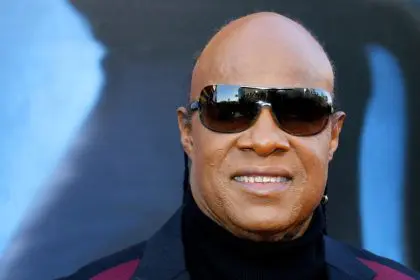The past several weeks have seen a flurry of activity from black rock artists — both veteran stars and exciting newcomers; and it looks as though African Americans with guitars are once again becoming a mainstay in music.
The big news this week was the release of two new albums from Prince and his band 3rdEyeGirl. Art Official Age serves as Prince’s 32nd official release; while PLECTRUMELECTRUM is the debut album for his band, 3rdEyeGirl. Prince is a talented multi-instrumentalist, as has been established for 35 years, but he can be a bit insular when putting on his one-man band showcases; and this is the biggest criticism of Art Official Age. But that somewhat claustrophobic spirit doesn’t stifle the songs —which are some of the best “The Purple One” has offered in years. “Breakfast Can Wait” was released earlier this year and remains a slinky highlight; the Daft Punk-ish title track is a funky dance gem, and “Breakdown” is his best slow jam in ten years. The sister disc (no pun intended), 3rdEyeGirl’s PLECTRUMELECTRUM, isn’t quite as exciting — despite the obvious abilities of all involved. The album was recorded mostly live and features inspired moments from both Prince and the technically-skilled ladies in the band — but you don’t get much of a sense of where they wanted to go with this music. It’s a decent listen that sounds like a tribute to 70s rock and is an effective showcase for Prince’s talents as a live performer, but doesn’t seem to convey much heat or consistency.
Last week, one of Prince’s most successful musical devotees —superstar Lenny Kravitz — released hi s latest project, the swaggering Strut. This is the opposite of the socially-aware material Kravitz churned out on his last album, 2011’s Black and White America; this is Lenny at his most unapologetically sex-driven. His inspiration seems to be the 70’s glam rock of T-Rex and Sweet on tracks like “The Chamber” and “I’m A Believer” wouldn’t sound out of place on a late 70’s Tom Petty record. You don’t really listen to Lenny Kravitz for innovation; you listen for his ability to tap into what made rock music so vital in it’s heyday. And on Strut, he shows that he’s still classic rock’s best revivalist.
s latest project, the swaggering Strut. This is the opposite of the socially-aware material Kravitz churned out on his last album, 2011’s Black and White America; this is Lenny at his most unapologetically sex-driven. His inspiration seems to be the 70’s glam rock of T-Rex and Sweet on tracks like “The Chamber” and “I’m A Believer” wouldn’t sound out of place on a late 70’s Tom Petty record. You don’t really listen to Lenny Kravitz for innovation; you listen for his ability to tap into what made rock music so vital in it’s heyday. And on Strut, he shows that he’s still classic rock’s best revivalist.
But it’s not just about the vets.
 In late August, blues rocker Benjamin Booker released his debut to critical acclaim and if you haven’t heard his eponymous album, it’s one of the year’s best. A foot-stomping throwback to gnarly rock guitar and earthy blues riffing, it’s an accomplished set of songs from one of the genre’s best new talents. Booker fits well alongside contemporaries such as Jack White and the Black Keys, but has a rough-hewn sound all his own and his album is remarkably assured. Another blues rock guitar legend-in-the-making is Malina Moye, who is releasing her new EP, the appropriately titled Rock & Roll Baby on Oct. 14. Moye has been featured on the Experience: Hendrix Festival Tour and the “Arsenio Hall Show,” and she’s one of the most exciting guitarists performing onstage today. Moye blends rock, funk and soul and has built a devoted following thanks to her electrifying skills and undeniable charisma. Rock & Roll Baby serves as a reminder that rock has never been an all-boys’ club, either. And on the ax, the pretty girl with the big guitar proves that she has chops that could blow away most of your favorite six-string gunslingers of today.
In late August, blues rocker Benjamin Booker released his debut to critical acclaim and if you haven’t heard his eponymous album, it’s one of the year’s best. A foot-stomping throwback to gnarly rock guitar and earthy blues riffing, it’s an accomplished set of songs from one of the genre’s best new talents. Booker fits well alongside contemporaries such as Jack White and the Black Keys, but has a rough-hewn sound all his own and his album is remarkably assured. Another blues rock guitar legend-in-the-making is Malina Moye, who is releasing her new EP, the appropriately titled Rock & Roll Baby on Oct. 14. Moye has been featured on the Experience: Hendrix Festival Tour and the “Arsenio Hall Show,” and she’s one of the most exciting guitarists performing onstage today. Moye blends rock, funk and soul and has built a devoted following thanks to her electrifying skills and undeniable charisma. Rock & Roll Baby serves as a reminder that rock has never been an all-boys’ club, either. And on the ax, the pretty girl with the big guitar proves that she has chops that could blow away most of your favorite six-string gunslingers of today.
Alongside artists like Gary Clark Jr., TV On the Radio and the Alabama Shakes, Booker, Moye and more are revitalizing the image of the rock star and reminding the world that black folks not only originated the art form but have been an inextricable part of the genre’s history throughout the past 50 years. While the mainstream media has turned a blind eye, African Americans are still rocking and rolling in 2014 and proving that we are as musically varied as we’ve ever been. White rappers and white soul singers continue to win major awards and become household names; so the perception of the black rocker as some sort of exotic novelty should be abandoned. Beyond originators like Chuck and innovators like Jimi, the presence of black folks in rock music should be recognized for what it is: an indelible piece of rock’s multi-layered history. Black people are more than rock’s inventors; we are it’s past, present and future.
















